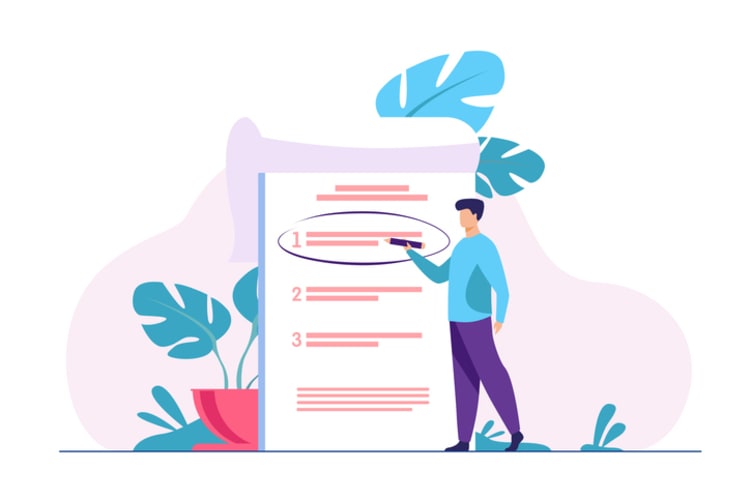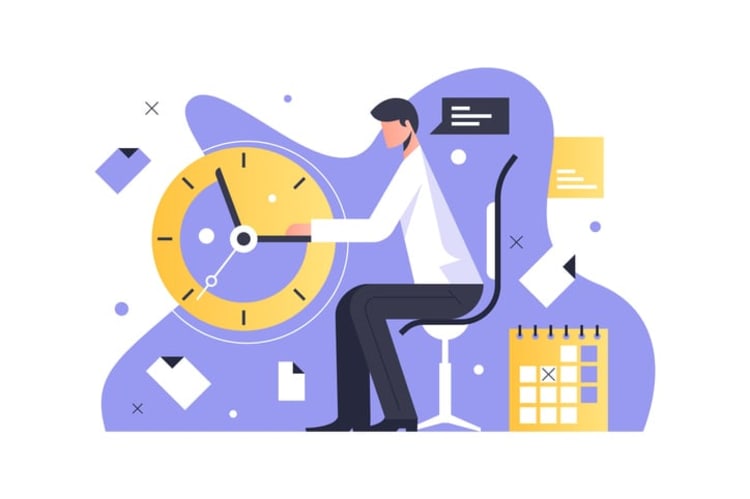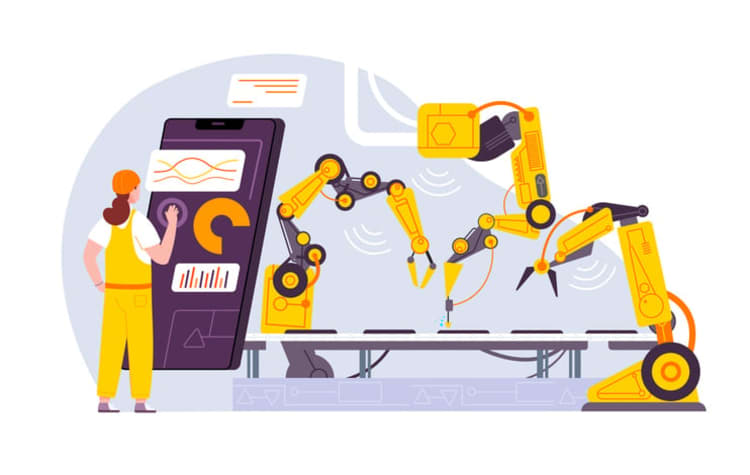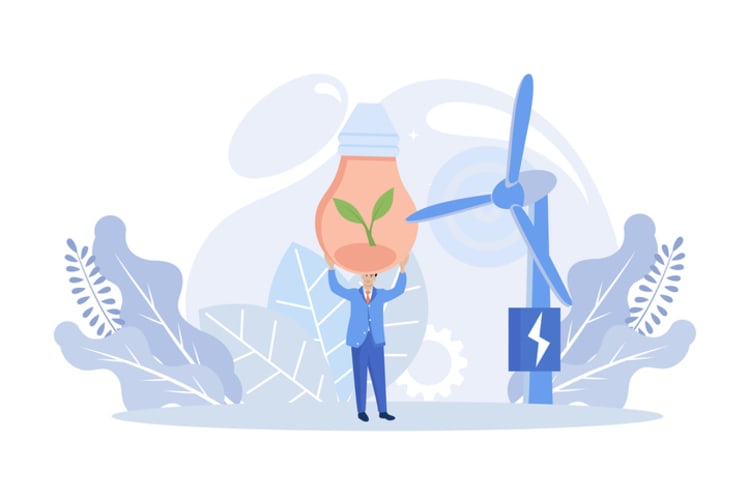Do you ever feel like no matter how hard you work, you’re not making the progress you desire? You’re not alone. The key to unlocking your full potential lies in adopting the “work smarter not harder” mentality. In this blog post, we’ll explore 17 practical tips to help you boost your efficiency, maximize your productivity, and achieve your goals with less effort. Are you ready to transform your work habits and unleash your true potential? Let’s dive in!
Key Takeaways
- Prioritize tasks to maximize efficiency and reach goals
- Use time management techniques & communication skills for productivity
- Foster a productive mindset, practice self care & seek support when needed
Unlock the power of prioritization

Prioritizing tasks forms the basis of working smarter. Concentrating your efforts on the most significant tasks will maximize your impact, keeping less critical activities from consuming your time. Learning to prioritize effectively involves:
- Identifying your most important tasks
- Using prioritization frameworks
- Regularly reevaluating your priorities to ensure you’re always working on what matters most.
The ability to prioritize is a valuable asset, as it enables you to:
- Direct your time and energy towards the tasks that truly contribute to your overall success and well-being
- Maintain focus in a world where distractions are abundant
- Make progress towards your life goals
Prioritization is the key to achieving success and maintaining a balanced life.
Identify your most important tasks
To identify your most important tasks, follow these steps:
- Create a to-do list.
- Rank tasks by their impact on your goals and objectives.
- Schedule tasks during your most productive hours to maximize efficiency.
- Delegate or eliminate less important tasks to free up valuable time and energy.
Concentrating on one task, especially the most valuable ones, will boost your productivity, thereby ensuring smart working strategies rather than a strenuous one.
Use a prioritization framework
Utilizing a prioritization framework, such as the Eisenhower matrix or the ABCDE method, can help you effectively organize and prioritize your tasks. These frameworks enable you to assess the importance and urgency of each task, ensuring that you’re focusing on what truly matters.
Implementation of a prioritization framework will provide clear insight into your priorities, maintain focus, and save time by sidestepping less significant tasks.
Reevaluate priorities regularly
Regularly reassessing your priorities is essential for staying on top of your goals and tasks, making informed decisions, and finding a balance in life. Reflect on your progress, ask for feedback, and make adjustments as needed to ensure you’re always working on the right tasks and making progress towards your objectives.
Remember, the key to working smarter is flexibility and adaptability.
Maximize efficiency with time management techniques

Perfecting time management is pivotal for smart work and productivity enhancement. Incorporating techniques like time blocking, the Pomodoro Technique, and setting feasible deadlines will amplify your efficiency, ensuring optimal use of your work hours.
Let’s explore these time management skills and techniques in more detail.
Time blocking
Time blocking is a powerful technique that involves scheduling specific time blocks for tasks throughout your day, allowing you to maintain focus and structured your day efficiently. Segmenting your day and allocating specific time blocks to certain tasks will keep distractions at bay and boost your productivity.
Time blocking can be an invaluable tool for staying on track and reaching your daily goals.
Pomodoro Technique
The Pomodoro Technique is another effective time management method that involves working in short, focused intervals with breaks in between. Incorporating this technique into your morning routine can help uphold productivity and ward off burnout. Dividing your work into 25-minute intervals, known as pomodoros, with subsequent 5-minute breaks will ensure you stay focused throughout the day.
This technique is especially helpful when working on challenging tasks that require focus and concentration.
Set realistic deadlines
Setting realistic deadlines is crucial for maintaining motivation and focus while avoiding procrastination. Establish achievable deadlines for your tasks, taking into account the time and resources required to complete tasks.
Establishing realistic deadlines will help you remain focused and organized, thereby maximizing time utilization and ultimately augmenting your productivity.
Harness technology and automation tools

Embracing technology and automation tools can help you work smarter by simplifying tasks, optimizing workflows, and making collaboration with others a breeze. Utilizing project management tools, automation platforms, and AI-powered productivity tools can streamline your work processes, save time, and boost your overall efficiency.
Let’s take a closer look at some of these tools and how they can enhance your productivity.
Project management tools
Project management tools, such as Trello or Asana, can help you stay organized and collaborate efficiently with your team members. These tools enable you to create boards, lists, and tasks to effectively manage your projects and track progress.
Adopting project management tools will streamline your workflow, enhance communication, and guarantee timely completion of tasks and projects without any glitches.
Automation platforms
Automation platforms like Zapier or IFTTT can help you save time and energy by automating repetitive tasks. By connecting your apps and automating workflows, these platforms can handle time-consuming tasks, allowing you to focus on more important aspects of your work.
Adoption of automation platforms can notably elevate your productivity and spare valuable time for more crucial tasks.
AI-powered productivity tools
AI-powered productivity tools, such as Grammarly or Kumospace AI, can improve various aspects of your daily tasks, from writing and transcription to data analysis. These tools leverage the power of artificial intelligence to streamline your work processes, save time, and boost your efficiency.
Making use of AI-powered productivity tools will facilitate smarter work and enable you to accomplish more with less effort.
Cultivate effective communication skills

Effective communication is essential for working smarter and maximizing productivity. By practicing active listening, crafting clear and concise messages, and asserting your needs and boundaries, you’ll improve collaboration and ensure that tasks and projects are completed efficiently.
Let’s delve deeper into these communication skills and how they can enhance your productivity.
Active listening
Active listening is a crucial communication skill that involves fully understanding and engaging with others during conversations. By giving your full attention to the speaker and their message, you’ll ensure that you fully comprehend their thoughts and ideas, preventing misunderstandings and fostering a productive environment.
Practicing active listening can greatly improve your collaboration skills and overall productivity.
Clear and concise messaging
Clear and concise messaging is essential for effective communication and productivity. Keeping your messages straightforward and to the point saves time and prevents misunderstandings.
Concentrating on essential information and removing superfluous details will make your messages easy to comprehend and accurately communicated, thereby increasing your productivity.
Use virtual office software
A recent evolution in video conferencing solutions look to make meetings more productive and less fatiguing. These communicaiton tools are often referred to as virtual office software or virtual workspace platforms and combine the benefits of video conferencing, spatial audio, and team chat.
Users of Kumospace, the #1 virtual office platform globally, have just 9 minute meeting on average and see strong boosts in productivity. This is the result of a replacing formal Zoom-style meetings with impromptu catch-up meetings.
Assertiveness
Assertiveness is the ability to:
- Express your needs, opinions, and boundaries in a respectful and confident manner
- Learn to say “no” and set boundaries
- Protect your time and energy
- Focus on the tasks that are most important to you
By developing assertiveness skills, you can improve your ability to communicate effectively and advocate for yourself.
Developing assertiveness is key to working smarter and maintaining a healthy work-life balance.
Foster a productive mindset and environment

A productive mindset and environment are critical for achieving optimal focus, motivation, and efficiency. By cultivating a growth mindset, optimizing your workspace, and embracing self-reflection, you’ll boost your productivity and work smarter, not harder.
Let’s explore these strategies in more detail.
Develop a growth mindset
A growth mindset is characterized by:
- The belief that you can develop your abilities and intelligence through effort and dedication
- Embracing challenges
- Learning from mistakes
- Seeking continuous improvement
These are key components of a growth mindset. Developing a growth mindset will keep you motivated, lead to improved results, and maintain resilience amid challenges, thereby facilitating smarter work and goal accomplishment.
Optimize your workspace
Creating a clutter-free, comfortable, and functional workspace is essential for enhancing focus and productivity. Here are some tips to achieve that:
- Ensure your workspace has sufficient lighting
- Use ergonomically designed furniture
- Implement organized storage solutions to minimize distractions and boost efficiency
Optimizing your workspace will foster an environment conducive to your productivity, enabling a smarter work approach.
Embrace self-reflection
Regular self-reflection is crucial for personal growth and productivity. Assess your progress, identify areas for improvement, and adjust your strategies accordingly to stay on track and achieve your goals.
Embracing self-reflection will offer valuable insights into your strengths and weaknesses, thus empowering you to work smarter and achieve your objectives with greater efficiency.
Preserve your mental health and well-being

Maintaining your mental health and well-being is essential for sustained productivity and overall happiness. Establishing work-life boundaries, practicing mindfulness and stress reduction techniques, and seeking support when needed can help you maintain productivity and overall well-being.
Let’s examine these strategies in more detail.
Establish work-life boundaries
Setting clear boundaries between work and personal life is crucial for preventing burnout and maintaining a healthy balance. Prioritizing your time, setting limits on work-related activities, and making room for personal activities and relationships will lead to a healthier work-life balance and a smarter, rather than harder, work routine.
Taking the time to establish these boundaries will help you stay focused and productive while also helping you to stay productive.
Practice mindfulness and stress reduction techniques
Incorporating mindfulness practices, meditation, or exercise as stress management techniques can help reduce stress and improve focus, ultimately boosting your productivity. Regularly practicing these techniques will enhance your mental clarity, emotional well-being, and overall performance, empowering you to work smarter and achieve your goals with greater ease.
Seek support when needed
Reaching out to colleagues, friends, or professionals for help and guidance when facing challenges or feeling overwhelmed is essential for maintaining productivity and well-being. By seeking support, you’ll gain access to valuable resources, knowledge, and expertise, enabling you to find solutions and overcome obstacles more effectively.
Remember, working smarter means knowing when to work smart and incorporate working smart strategies, asking for help when needed.
Summary
In conclusion, working smarter, not harder, is the key to unlocking your full potential and achieving your goals. By prioritizing tasks, managing your time effectively, harnessing technology and automation tools, cultivating effective communication skills, fostering a productive mindset and environment, and preserving your mental health and well-being, you’ll boost your efficiency, maximize your productivity, and ultimately reach your objectives with less effort. Remember, the journey to working smarter is a continuous process, and with practice and perseverance, you’ll transform your work habits and unleash your true potential.
Frequently Asked Questions
The phrase “Work smarter not harder” originated in the 1930s, when Allen F. Morgenstern, an industrial engineer and creator of the work simplification process, coined it.
This phrase encourages people to produce more with less effort.
Working smarter helps save energy, optimize time and be more efficient in the workplace. By prioritizing tasks, getting organized, delegating responsibilities and avoiding multitasking, entrepreneurs can alleviate burnout, increase efficiency and achieve better results, making it clear why it is better to work smarter not harder.
It is easy to see how the phrase “Work smarter, not harder” can be taken as an insult as it implies people aren’t already utilizing their intelligence and experience.
However, when said in the right tone and context, it can act as an encouraging reminder for working more efficiently.
Take the time to prioritize your tasks, use technology and automation tools to save time, work on communication skills, cultivate a productive mindset and environment, and take care of your mental health.
Doing these things will help you work smarter, not harder.
Active listening, crafting clear messages, and assertiveness are key to improving communication skills and boosting productivity.
Making smart decisions can help you work smarter and be more efficient with your time. Implement the tips provided in this blog post to prioritize tasks, manage your time effectively, utilize technology and automation tools, improve communication skills, cultivate a productive mindset and environment, and maintain your mental health and well-being.
Time blocking, the Pomodoro Technique, and setting realistic deadlines are all effective time management techniques to help you maximize productivity.
Establish work-life boundaries, prioritize personal activities and relationships, and seek support when needed to maintain a healthy work-life balance.
Schedule regular breaks for meditation, yoga, or other mindfulness practices to reduce stress, improve focus, and boost productivity.





